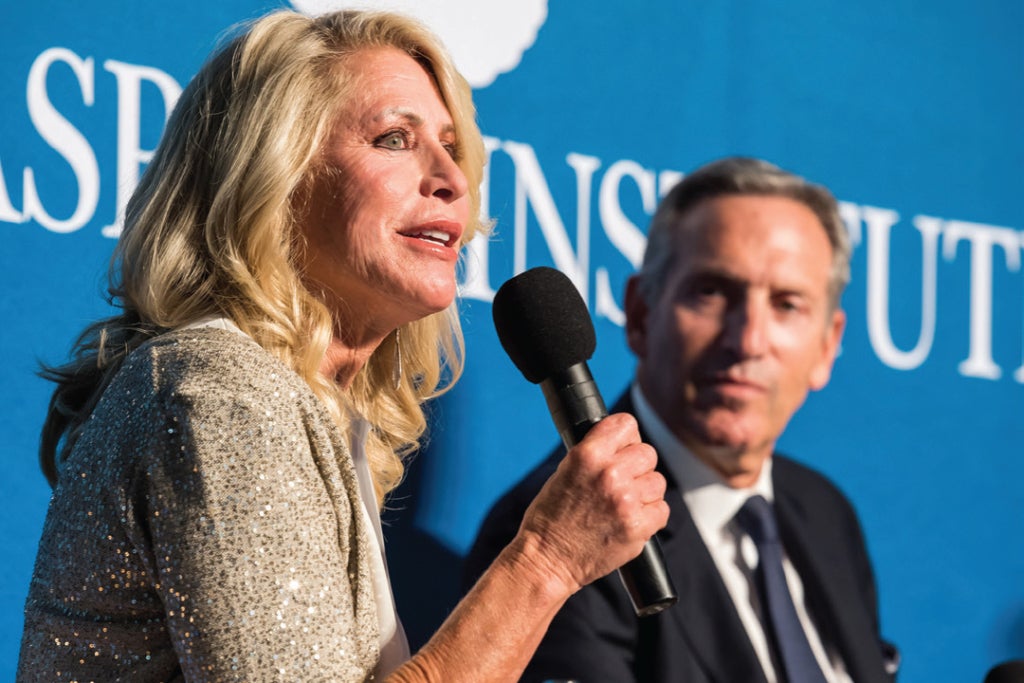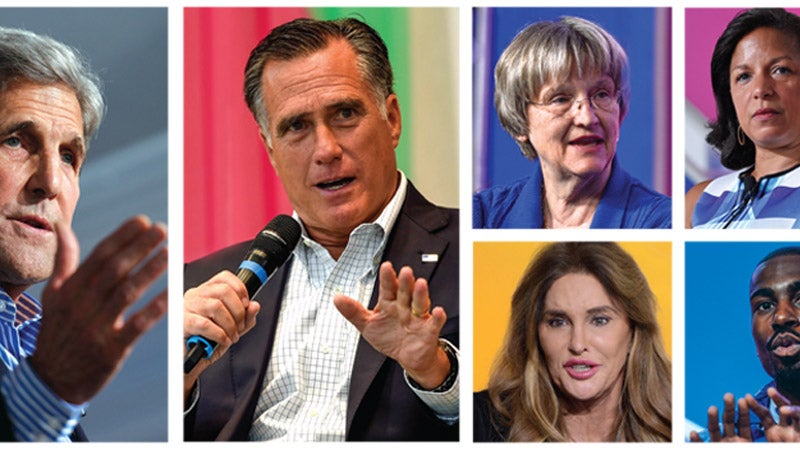
As part of a public conversation on values-based leadership preceding the Institute’s 23rd annual Summer Celebration Dinner, Howard and Sheri Schultz, this year’s recipients of the Aspen Institute Public Service Award, took the stage to discuss the role of the Schultz Family Foundation, which works with citizens facing barriers to success—particularly “opportunity youth” and veterans—in the couple’s quest to improve and inspire an American social contract based on compassion. The Schultzes were joined by Oscar– and Grammy Award–winning artist Common, who uses his music to fill a similar role. “Some people go unheard, unseen,” he told the group. “They are invisible. I take it upon myself to speak for those people and for every human being walking this earth.”
Here are highlights from the Schultzes’ conversation with Walter Isaacson.
Walter Isaacson: What have you learned from running Starbucks that helps you understand the type of governance we should have in this country, or the type of values we should have?
Howard Schultz: We have 25,000 stores in 73 countries. We serve almost a hundred million customers each week, but the core foundation of our company is our founding values and guiding principles. In 1987, when we had 11 stores, we decided early on that we were going to build a different kind of business model, where we would achieve the fragile balance of profit and conscience. That meant we were going to give ownership to every employee—every single person at Starbucks who works 20 hours or more, which is 95 percent of our employees, is an owner of Starbucks globally. We created comprehensive health insurance 30 years before the Affordable Care Act. This past year, we honored college achievement by giving free college tuition—for four years—to every employee.
We’re not smarter; we’re not better. We’re a coffee company. But all these things are based on a recognition that culture and humanity are what drive decisions and what we do. We are a performance-driven company operating through the lens of humanity. Going back to Washington, when I look at the decisions being made and the divisiveness, complicity, lies—the humanity of the nation has been stripped as a result of the fracturing of leadership.
WI: Twenty years ago, you launched the Schultz Family Foundation. Tell me how it has evolved and what you’ve learned.
Sheri Schultz: When we first started the foundation, I don’t think we could even call it a foundation. I would call it responsive giving—seeing incredible needs in the community and people who needed help, grassroots organizations that lifted people’s spirits and gave them hope.
I think our foundation honestly started in a van. The very first time I went out in the community was to give at-risk, homeless youth hot meals and socks. I was intimidated, for sure, but I remember this moment when a young boy looked at me with incredible eye contact and said, “Thank you, I’m so grateful, it’s so cold outside.” And I saw my son. So that was really the beginning, the impetus, of coming back to Howard and saying, “We can do responsive giving, but strategically, we have to figure out—what are the greater needs of the community and what is the capacity to change?”
WI: Tell me about the veterans push.
SS: There’s a lot of crossover between at-risk youth and soldiers coming home from war. They’re greatly misunderstood, they don’t know how to apply their skills to become assets, and we don’t understand who they are. They all have stories to tell that are significant and help create who we are and how we should identify ourselves as a nation. The work that we’re doing, particularly with jobs but also with helping families and veterans come home and adjust—it changes the narrative of who we are as people and gives us an opportunity to stop something happening in America that is rampant and completely unfair.
HS: We hired about 10,000 veterans.
SS: And 97,000 youth.


